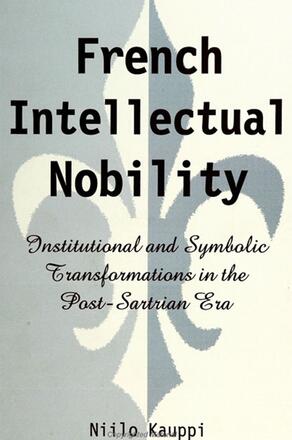
French Intellectual Nobility
Institutional and Symbolic Transformations in the Post-Sartrian Era
Alternative formats available from:
The first study to examine the conditions that led to the production of theories like "structuralism" and "poststructuralism. "
Description
French thinkers like Roland Barthes, Pierre Bourdieu, A. J. Greimas, Michel Foucault, and Claude Levi-Strauss created the "structuralist" and "poststructuralist" movements. They succeeded Sartrian existentialism and formed a new aristocracy of culture. French Intellectual Nobility is the first study to examine the conditions for the creation of these movements. Through case studies in cultural history, sociology, semiology, and literature, the book discusses the processes that enabled the French intellectual nobility to reinvent itself. By developing a historical and comparative approach, Kauppi analyzes the challenges that an intellectual generation faced, and he contributes to a context-sensitive analysis of culture and power.
Niilo Kauppi is Research Fellow at the Academy of Finland and recently was Visiting Scholar at the Ecole des Hautes Etudes en Sciences Sociales.
Reviews
"There is not, to my knowledge, any work in English or in French that does such a good job of integrating the historical and the structural. Kauppi's sociological perspective allows him to see better than most what ties together Foucault, Bourdieu, and Derrida; to see the commonalities of the discursive style of Levi-Strauss, Foucault, Derrida, Bourdieu, and Kristeva.
"The work should be useful to those interested in contemporary French culture, in the history of the social sciences—sociology in particular, and in French intellectual life. " — Priscilla Parkhurst Ferguson, Columbia University
"The book is of particular interest to American audiences because it illuminates the specific aspects of French intellectual culture that helps to explain the emergence and popularity of structuralism and why French intellectual culture has retained its trademark as a high-status cultural good.
"Kauppi shows the symbolic boundaries of the post-Sartrian French intellectual nobility and indicates how its definitions of what constitutes intellectual excellence differs from its opposition. " — Edward Schaffer, State University of New York, Plattsburgh